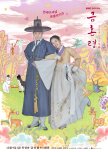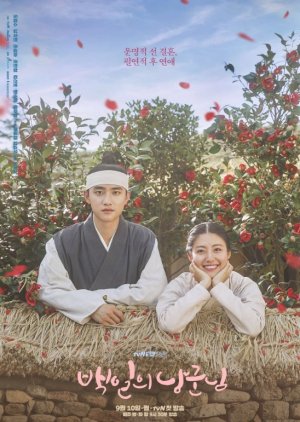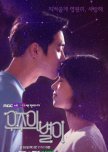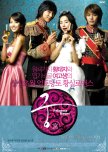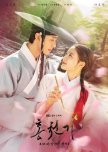
During the Joseon Dynasty, a young woman named Hong Chun Ki is a painter – a true rarity in Joseon Korea, where Confucian values dictate that such pursuits are unsuitable for a woman. She was born blind but somehow managed to acquire a sense of vision. And now she has been accepted to the most prestigious art college in the land. One day, she meets Ha Ram, an astrologer whose fate is the polar opposite of her own: Although he was born sighted, he lost his vision in a childhood accident. Regardless, he is also in possession of an astounding talent that allows him to read the future by tracing the movement of the sky at night despite the fact that he is blind. The duo is sucked into the machinations of the royal court, particularly those involving two princes, the free-spirited Prince Yang Myung and the cruel, scheming Prince Joo Hyang – a man who longs to become the next Joseon king.

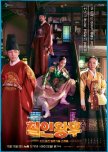
Both have:
- MC that both have hidden/changed identities
- a Love Story were the MC are thrown together/get married right away without
knowing/liking each other - but come to care about each other as the story evolves
- a King/Prince that wants to change the system to be less corrupt
- stong, spunky female Lead and somewhat quirky ML
- a protecitve older Brother
- MC that both have hidden/changed identities
- a Love Story were the MC are thrown together/get married right away without
knowing/liking each other - but come to care about each other as the story evolves
- a King/Prince that wants to change the system to be less corrupt
- stong, spunky female Lead and somewhat quirky ML
- a protecitve older Brother
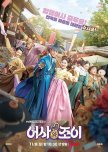
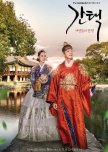
Both are historical dramas in which the young king falls in love with a noble girl he meets in childhood, but tragedy causes her to end up losing her family and living a commoner life, while he never forgets her and continues to search for her, finally finding her as an adult. Both dramas feature memory loss (ML vs. FL), an assassination attempt on the king in which he is initially believed dead, and scheming within the palace.

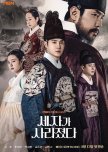
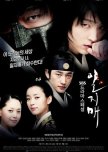
It's the same story being retold over and over again and yet we're still interested.
Although both focus on the classic trope of star-crossed love, they explore it in slightly different perspectives. Iljimae is a journey of developing one's identity whereas 100 Days My Prince is about finding the identity and happiness that have been lost.
Ultimately, it is still the settings of the historical periods and grace of the plot that really draw the 2 dramas close.
Although both focus on the classic trope of star-crossed love, they explore it in slightly different perspectives. Iljimae is a journey of developing one's identity whereas 100 Days My Prince is about finding the identity and happiness that have been lost.
Ultimately, it is still the settings of the historical periods and grace of the plot that really draw the 2 dramas close.
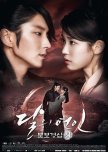
The lone wolves that cry out in silence. Both shows that being a prince has got to be the loneliest position in the world with them being back and forth stabbed. Until the female lead comes along to brighten up their days of misery.
However, rather just damsel-in-distress tales where all things seem to turn right, the characters actually have to overcome plenty of hardships and all events happen for a good reason too.
However, rather just damsel-in-distress tales where all things seem to turn right, the characters actually have to overcome plenty of hardships and all events happen for a good reason too.

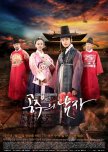
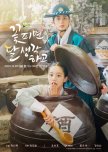
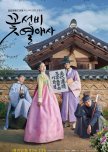
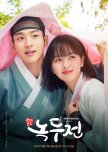
If you like The Tale of Nokdu, I think you'd also like 100 Days My Prince! Both have:
- strong female lead with tragic pasts
- male leads trying to figure out who they really are
- a morally ambiguous king
- group of supportive friends/family!!!!
- comedy! romance! history! drama!
- amazing chemistry between the two leads
- strong female lead with tragic pasts
- male leads trying to figure out who they really are
- a morally ambiguous king
- group of supportive friends/family!!!!
- comedy! romance! history! drama!
- amazing chemistry between the two leads
